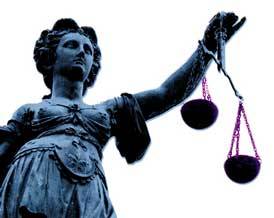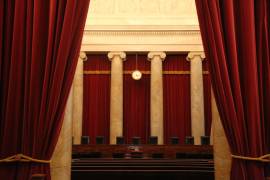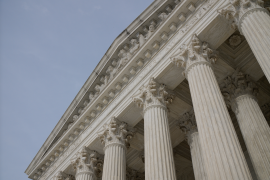
Towards a More Just Judiciary: Openly Gay Judges May Be Coming to a Court Near You!
Blog Search
A new normal is emerging in courts in some states across the country as openly gay judges continue to be nominated to serve at the highest levels of the judiciary. There is no better example of this rapid progress than the recent change of hearts and minds in Virginia.
It was only last summer that Virginia made headlines after the House of Delegates blocked the nomination of openly gay prosecutor, Tracy Thorne-Begland, to serve as a judge on the District Court of Richmond. Now, just six months later, the Republican-controlled House voted overwhelming to confirm him to a full six-year term on the bench.
In rejecting Thorne-Begland’s nomination last year, many legislators cited his sexual orientation and discharge from the Navy for coming out 20 years ago under "Don't Ask Don't Tell," as an impediment to his ability to remain impartial and uphold the law. This time, the political climate changed so drastically that the legislature did not even feel the need to hold open debate when it took up Thorne-Begland’s judgeship.
So, Virginia will keep their first and only openly gay judge. But the Commonwealth doesn’t stand alone.
In November, California Governor Jerry Brown appointed out lesbian Paula Rosenstein to the San Diego Superior Court and made judicial history by appointing the first openly gay justice at the state’s appellate level, Jim Humes. It was Governor Brown who nominated the first out gay judge in the United States, Stephen Lachs, during his previous term as governor in 1979.
Governor Andrew Cuomo recently appointed Judge Paul Feinman to New York’s second highest court, marking the first time an openly gay man has been appointed to an appellate court in the state. The first openly LGBT judges at the appellate level were former Lambda Legal Executive Director Rosalyn Richter and Elizabeth Garry who both share the distinction after being appointed on the same day in 2008.
In December, Connecticut Governor Dan Malloy nominated Andrew J. McDonald to be the first openly gay justice of the Connecticut Supreme Court. McDonald was previously a member of the Connecticut General Assembly where he was Co-Chair of the Judiciary Committee that approved a marriage equality law, and also served as city attorney when Malloy was mayor of Stamford. It was Governor Malloy who performed McDonald's wedding in 2009 after the Court ruled in favor of the freedom to marry the previous year.
President Obama has also appointed an unprecedented eight openly gay nominees to the federal bench. At the start of the new Congress, President Obama renominated 33 judicial candidates, including the first gay African-American judge, William L. Thomas, and lesbian Latina judge, Quiñones Alejandro. If confirmed by the Senate they will join openly LGBT judges Pamela Ki Mai Chen, Michael Fitzgerald, Paul Oetken, Alison Nathan, and Deborah Batts on the federal bench.
Yet, despite the appointment and confirmation of out LGBT judges on state and federal courts, there is still a work that must be done to ensure that our courts are more inclusive and just. State and federal courts are charged with providing everyone with equal access to justice, and yet justice has not always been a reality for some.
Judges have and will continue to decide important life issues for LGBT people. There is every reason for the LGBT community to demand that action be taken so that LGBT people do not continue to be significantly underrepresented on the bench. A diverse judicial system that represents a broad range of perspectives and experiences serves not only to improve the quality of justice, but to boost public confidence in the legitimacy of the courts.




